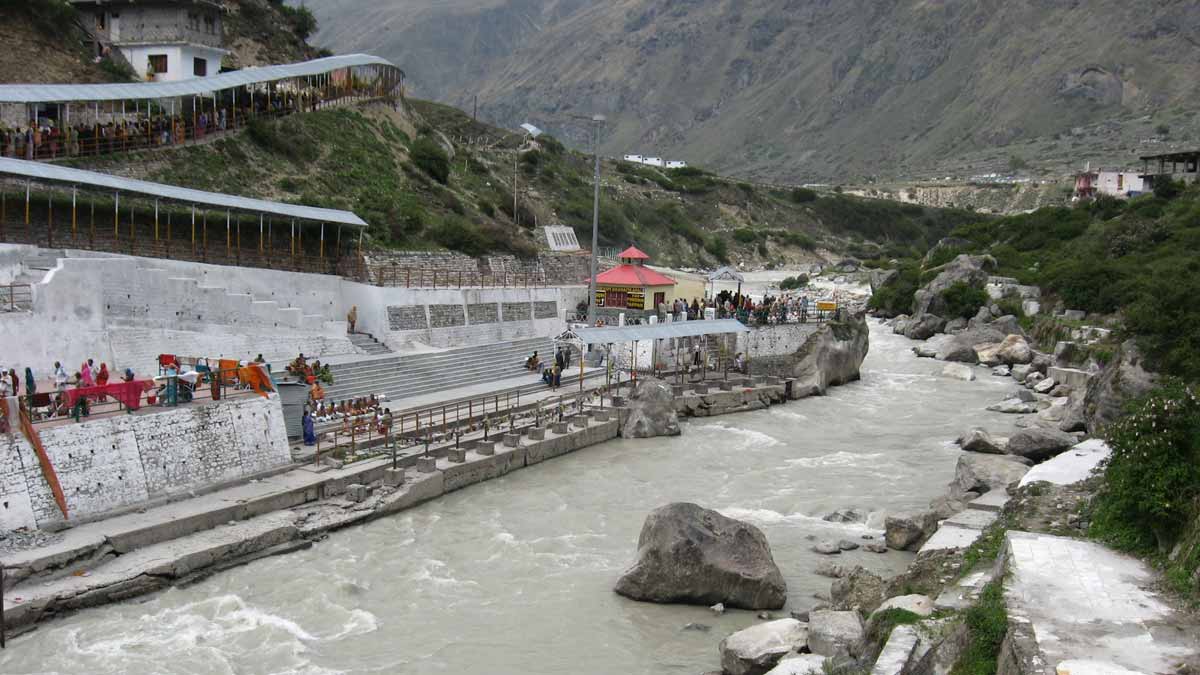Pind Daan in Brahma Kapal: A Gateway to Moksha

Pind Daan, a revered Hindu ritual, is performed to honour deceased ancestors and ensure their spiritual liberation (moksha). This sacred ceremony is believed to free the souls of the departed from worldly attachments and guide them to the afterlife. Among the many locations in India for performing Pind Daan, Brahma Kapal in Badrinath holds a unique place due to its immense religious significance.
Nestled in the serene Himalayas, Brahma Kapal is a sacred site on the banks of the Alaknanda River, near the revered Badrinath Temple. This article explores the importance of Pind Daan at Brahma Kapal, the rituals involved, the spiritual benefits, and the cultural significance of this sacred practice.
The Significance of Brahma Kapal
Brahma Kapal is not just a physical location but a divine centre imbued with mythological and spiritual significance. According to Hindu mythology, this is the spot where Lord Brahma himself resides, and it is believed that performing Pind Daan here liberates the ancestors and ensures they attain salvation.
Mythological Importance
It is said that Lord Shiva severed Brahma’s fifth head at this site, and hence, the place is named Brahma Kapal (Brahma’s skull). Scriptures mention that Pind Daan performed here has the power to end the cycle of rebirth, granting eternal peace to the departed souls.
Connection with Badrinath Temple
Brahma Kapal’s proximity to the Badrinath Temple, one of the Char Dhams, enhances its sanctity. Pilgrims often combine their visits to Badrinath with performing Pind Daan at Brahma Kapal to fulfil both spiritual and ancestral duties.
What is Pind Daan?
Meaning and Purpose
The term “Pind” refers to balls made of rice, barley flour, sesame seeds, and ghee, while “Daan” means offering. Pind Daan involves offering these pindas along with prayers to the deceased ancestors. The ritual expresses gratitude and helps their souls progress in their spiritual journey.
Why is it Performed?
Pind Daan is performed to:
- Provide peace to the departed souls.
- Repay the ancestral debt (Pitru Rina).
- Seek blessings from ancestors for the well-being of the family.
The Rituals of Pind Daan at Brahma Kapal
Performing Pind Daan at Brahma Kapal involves various steps, guided by experienced priests. Each step holds symbolic and spiritual significance.
1. Preparations for the Ritual
- Choosing an Auspicious Time: Specific days such as Amavasya (new moon day), Pitru Paksha (fortnight dedicated to ancestors), or other astrologically favourable dates are ideal for Pind Daan.
- Gathering Offerings: The materials needed include rice balls (pindas), flowers, black sesame seeds, darbha grass, and ghee.
2. Invocation of Ancestors
The priest invokes the ancestors’ spirits through prayers and mantras, requesting their presence during the ritual.
3. Offering the Pindas
The pindas are placed on darbha grass and offered along with water from the Alaknanda River. The act symbolizes feeding the ancestors and fulfilling their spiritual needs.
4. Recitation of Mantras
Priests chant Vedic mantras and shlokas, which amplify the sanctity of the ritual and ensure its effectiveness.
5. Concluding Prayers
After offering the pindas, a prayer is conducted to bless the departed souls with peace and liberation. The ceremony often concludes with donations to the priests and the poor, as acts of charity are considered auspicious.
Why Perform Pind Daan at Brahma Kapal?
Brahma Kapal stands out as one of the most potent locations for performing Pind Daan due to several reasons:
1. Mythological Sanctity
The presence of Lord Brahma and its connection to the cycle of creation and destruction make Brahma Kapal a spiritually charged location.
2. Spiritual Benefits
Performing Pind Daan at Brahma Kapal is believed to ensure that the ancestors’ souls achieve moksha, freeing them from the cycle of rebirth.
3. Scenic and Serene Environment
Surrounded by the majestic Himalayas and the sacred Alaknanda River, Brahma Kapal offers a tranquil and divine setting for this solemn ritual.
4. Association with Badrinath
The added opportunity to seek Lord Vishnu’s blessings at Badrinath Temple enhances the spiritual merit of the journey.
The Spiritual Benefits of Pind Daan at Brahma Kapal
The act of Pind Daan, especially at a sacred site like Brahma Kapal, is believed to bring numerous spiritual and emotional benefits:
- Liberation for Ancestors: The ritual ensures the spiritual progress of the ancestors, freeing them from any lingering earthly attachments.
- Family Blessings: Performing Pind Daan invokes the blessings of ancestors, which are believed to bring prosperity, happiness, and success to the family.
- Self-Purification: Engaging in this selfless act helps the performer attain spiritual growth and inner peace.
- Fulfilment of Duty: The ritual fulfils the familial and dharmic obligation of repaying the Pitru Rina (ancestral debt).
Practical Considerations for Pind Daan at Brahma Kapal
If you plan to perform Pind Daan at Brahma Kapal, here are some practical tips to keep in mind:
- Timing: Ensure to visit during favourable weather, as Badrinath and Brahma Kapal are in a high-altitude region, with accessibility limited during winters.
- Priestly Guidance: Engage an experienced priest familiar with the local traditions to guide you through the rituals.
- Offerings: Bring all necessary materials or arrange for them locally through trusted sources.
- Charity: It is customary to donate food, clothes, or money to the needy as part of the ritual.
Conclusion
Pind Daan at Brahma Kapal is a deeply spiritual act that not only honours one’s ancestors but also fosters a connection with the divine. The ritual is steeped in faith, tradition, and the hope of ensuring eternal peace for departed souls. Brahma Kapal, with its sacred environment and mythological importance, serves as the perfect venue for this significant ceremony.
By performing Pind Daan at Brahma Kapal, one fulfils their spiritual responsibilities, gains ancestral blessings, and contributes to their own spiritual journey. For families seeking peace for their departed loved ones, Brahma Kapal remains a gateway to moksha, carrying the echoes of ancient traditions into the eternal realm.






